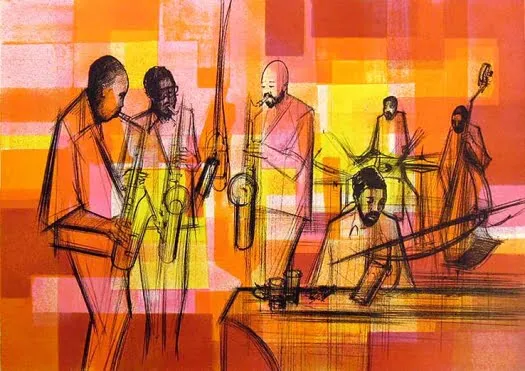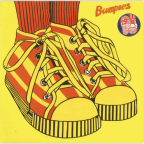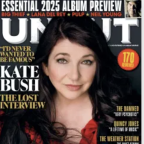Bloody lovely to see the review by Richard Williams has been reposted on Jazz Blue News website
They have an impressive team of international writers, with over 72,000 views each day…. equally impressive is their home page, which has a lot going on, and it’s all interesting stuff. Definitely worth a look…
Meanwhile what did Richard say?
“The format is that of an LP-size hardback of considerable heft (432 pages of high-grade paper in case of the new one), an oral history with testimony from participants and interested bystanders lavishly illustrated with photos, sleeve artwork, press cuttings, documents, ads and other ephemera. What 1969-70 means is loads of background (and foreground) material beginning with Steve Winwood’s involvement in Blind Faith and ending with King Crimson’s third album, Lizard. Among those featuring heavily are Spooky Tooth, Free and Mott the Hoople, three classic early Island rock bands whose largely student and mostly male following tended to sport ex-army greatcoats, along with plimsolls, loon pants and cheesecloth shirts.
“You get their stories in jigsaw form, pieced together with great diligence in mostly bite-sized chunks of testimony. A good example is the treatment of Nick Drake’s Five Leaves Left: the producer Joe Boyd, the engineer John Wood, the bass player Danny Thompson, the guitarist Richard Thompson and the arranger Robert Kirby help describe its making, while Blackwell and his Island colleagues David Betteridge, Tim Clark, Bob Bell and Barry Partlow and the record shop owners John Clare and Eugene Manzi try to explain why it didn’t sell. (When Boyd sold his Witchseason production company to Blackwell in the ’70, it was with the stipulation in the contract that Drake’s three albums should never be deleted.) Others providing testimony include Gabrielle Drake, Nick’s sister, and Victoria Ormsby-Gore, a well connected friend.
“There’s too much stuff here for me to begin to do it justice, but the riches include the triumph of King Crimson’s first album, helped by the fact that their two managers, David Enthoven and John Gaydon, were, like Blackwell, Old Harrovians; the debut album by Quintessence, a quintessentially Island band (i.e. Notting Hill hippies) that it turns out nobody in the company really seemed to like; the Fotheringay debacle, which derailed Sandy Denny’s career; the emergence of two ex-Alan Bown Set singers, Jess Roden and Robert Palmer, respectively with Bronco and Vinegar Joe; and the huge success of Cat Stevens, reinvented as a singer-songwriter with Tea for the Tillerman, and of Emerson, Lake & Palmer.
The original version is on Richard Williams Website, The Blue Moment








